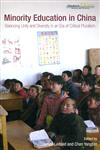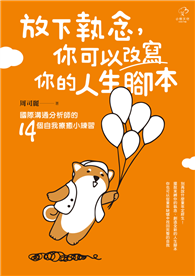| FindBook |
|
有 1 項符合
Minority Education in China:Balancing Unity and Diversity in an Era of Critical Pluralism的圖書 |
 |
$ 892 ~ 1050 | Minority Education in China:Balancing Unity and Diversity in an Era of Critical Pluralism
作者:James Leibold and Chen Yangbin 出版社:香港中文大學出版社 出版日期:2013-12-01 語言:繁體書  共 3 筆 → 查價格、看圖書介紹 共 3 筆 → 查價格、看圖書介紹
|
|
|
This edited volume brings together essays by leading experts exploring different aspects of ethnic minority education in China: among these are the challenges associated with bilingual and trilingual education in Xinjiang and Tibet; Han Chinese reactions to preferential minority education; the role of inland boarding schools for minority students, and the mediation of religion and culture in multiethnic schools. The book covers these topics from a range of different perspectives: Uyghur, Tibetan, Korean, Mongolian, Han, and those of the West, combining empirical field studies with theoretical approaches. Previous scholarship has explored the pedagogical and policy challenges of minority education in China; this is the first volume to recast these problems in light of the Chinese Party-state’s efforts to balance ethnic diversity and cohesion through a shared sense of national belonging in the twenty-first century.
作者簡介:
James Leibold is senior lecturer in politics and Asian studies at La Trobe University, Australia. He is the author of Reconfiguring Chinese Nationalism: How the Qing Frontier and Its Indigenes Became Chinese (2007), Ethnic Policy in China: Is Reform Inevitable? (2013), and co-editor of Critical Han Studies: The History, Representation and Identity of China’s Majority (2012).
Chen Yangbin is lecturer in Chinese studies in the School of Humanities at La Trobe University and the author of Muslim Uyghur Students in a Chinese Boarding School: Social Recapitalization as a Response to Ethnic Integration (2008).
- 作者: James Leibold and Chen Yangbin
- 出版社: 香港中文大學出版社 出版日期:2013-12-01 ISBN/ISSN:9789888208135
- 語言:繁體中文 裝訂方式:平裝 頁數:428頁
- 類別: 中文書> 社會科學> 社會
|





![塔木德:猶太人的致富聖經[修訂版]:1000多年來帶領猶太人快速累積財富的神祕經典 塔木德:猶太人的致富聖經[修訂版]:1000多年來帶領猶太人快速累積財富的神祕經典](https://media.taaze.tw/showLargeImage.html?sc=11100697818)





